
Effective Animal Advocacy Fund: Spring 2019 Grantee Updates
In April 2019, we distributed the first round of grants from our Effective Animal Advocacy Fund (EAA Fund).1 Now, we’re excited to share some updates from the grantees!2
Updates
Animal Aid ($50,000)
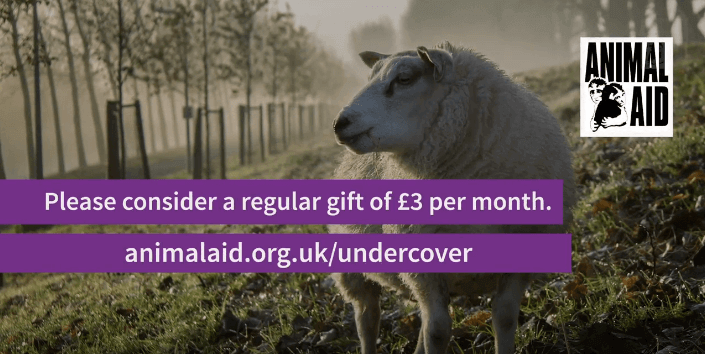
With their grant from the EAA Fund, Animal Aid planned to make their education program more inclusive, build on their vegan pledge program, upgrade their capacity for carrying out undercover investigations, and conduct more Activist Workshops. Since receiving the grant, Animal Aid has shown films and lectures at schools and aimed to reach a more diverse audience. In 2019, they organized a total of three Activist Workshops. In addition, they launched their yearly Summer Vegan Pledge which received a total of 3,556 sign-ups, of which an estimated 57% claimed to plan to stay vegan afterward.3 We are most excited about Animal Aid’s exposé of welfare violations at a Welsh slaughterhouse, part of their campaign to demand surveillance cameras in all slaughterhouses located in U.K. countries.4
Animal Ethics ($44,000)
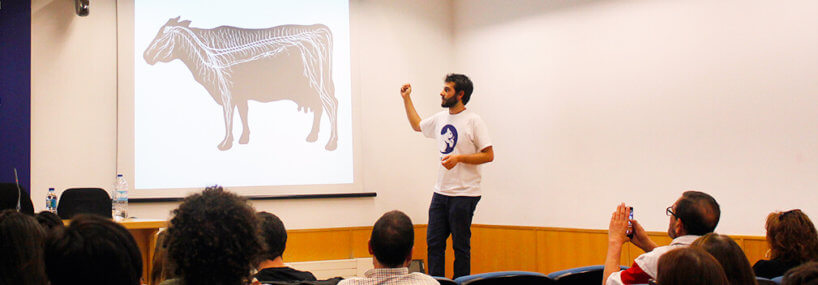
Animal Ethics works to spread anti-speciesist messages in academia and to a general audience. They applied for funding to conduct new foundational research and further develop their online resources for animal advocates. With the grant, they published three new web pages5 and updated 19 others. Their updated pages include general information about wild animal suffering,6 as well as advice for helping animals in the wild.7 After surveying academics and students for promising wild animal welfare intervention areas to focus on, they started researching urban welfare ecology.8 They have also carried out research on the reasons why age-specific mortality is relevant to welfare biology, and they compiled a bibliography of research on welfare biology. They continue to work on an online course, and they completed an advocacy guide on welfare biology that will be published in the upcoming weeks. Animal Ethics hopes that the different components of this project will help raise concern about wild animal welfare, provide training for animal advocates to engage in outreach, and support new researchers with resources to help them contribute to the field.
Animal Justice Project ($20,000)
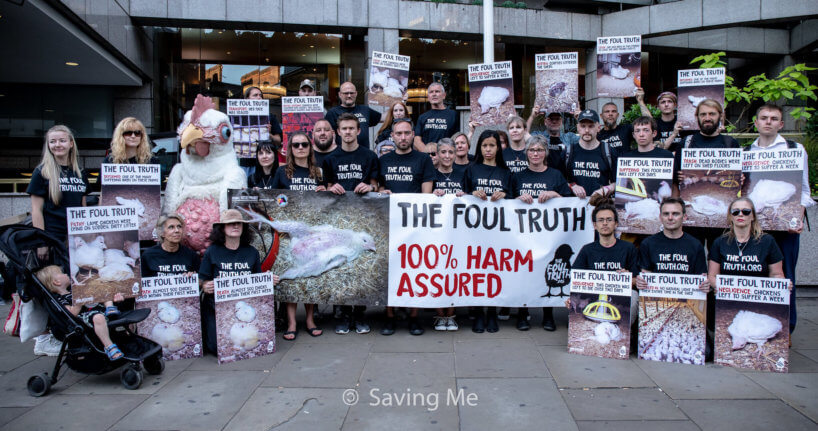
ACE funded Animal Justice Project for a campaign to help chickens used for meat. In July, Animal Justice Project launched The Foul Truth campaign with undercover footage obtained from supposedly “high welfare broiler farms.” The farms were located in Suffolk, U.K. and supplied meat to U.K. supermarket Tesco. The investigation was featured widely in the press9 and resulted in Tesco dropping the farms as suppliers.10 For this campaign, Animal Justice Project collaborated with the Animal Save Movement.11 The campaign consisted of an interactive “Life of Lucy” outreach tour as well as online outreach. Animal Justice Project also set up a scheme to sponsor rescued chickens Fleur, Basil, and Rosie whose stories are featured in their campaign.
Animal Place ($10,000)
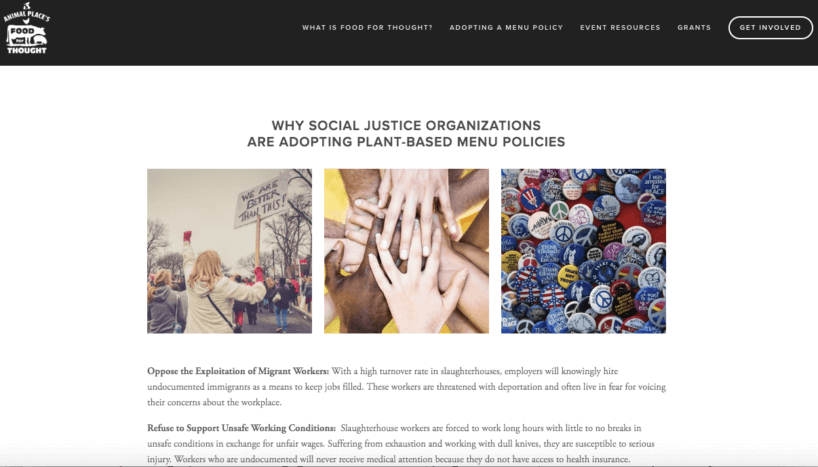
The EAA Fund provided funding for Animal Place to expand their Food For Thought program. The program advocates for organizations outside of the animal advocacy movement to adopt plant-based menu policies for their sponsored events and fundraisers, focusing on the ways in which veganism aligns with their own missions. So far, they have identified target outreach areas within the human rights advocacy sector and identified five food policies they can encourage other organizations to adopt. They are also working on a survey that they will send to target organizations to learn about how they can make their work more effective. In addition, they expect to launch a website soon that will incorporate information about the impact of animal farming on human populations. The website will also serve as a resource for social justice organizations looking to make the shift towards plant-based policies.
Animal Welfare Media ($33,000)
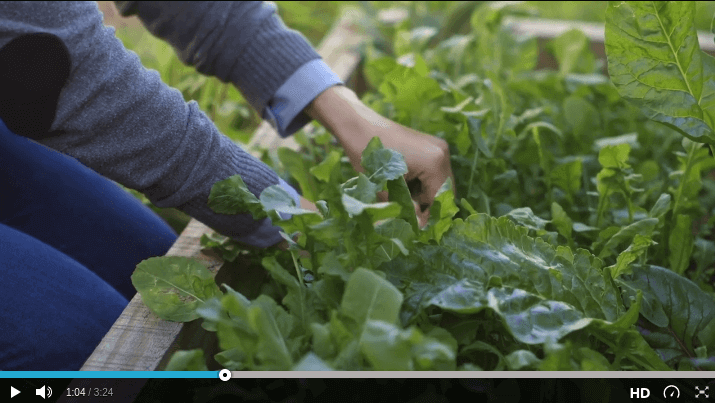
Animal Welfare Media applied for an EAA Fund grant in order to produce videos for three animal charities that could not otherwise afford their services. So far, Animal Welfare Media produced two videos, one for Thinking Animals United and one for the Food Empowerment Project (one of our other EAA Fund grantees). We are most excited about the video produced for the Food Empowerment Project and hope it will support them by showcasing their work and reaching a wider audience.
Aph Ko ($40,000)
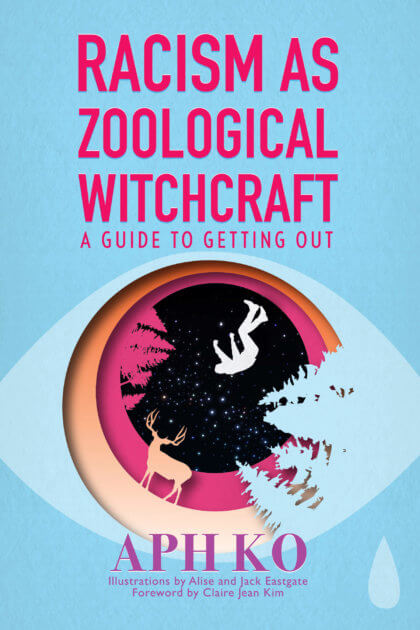
Aph Ko is a scholar working to bridge the gap between the animal advocacy and anti-racist movements. With this grant, we supported the completion and promotion of Aph Ko’s second book, Racism as Zoological Witchcraft: A Guide to Getting Out.12 Ko hopes this book will serve as an accessible guide for discussions on the entanglement of animal oppression and racial oppression. Ko was a keynote speaker at the Animal Rights National Conference. In addition, she is working on an animation that is currently in pre-production and will center on the relationship between anti-racism and animal rights.
A Prayer for Compassion ($25,000)
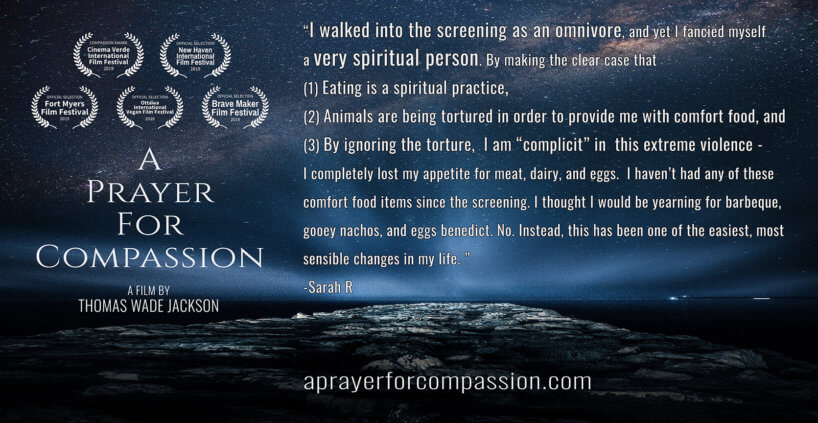
ACE provided funding for The Compassion Project to promote the new documentary A Prayer for Compassion, produced primarily for religious audiences. A Prayer for Compassion reports that their 400-seat premiere was sold out and that since then, there have been over 80 screenings of the film in over five countries. Many of the screenings have been accompanied by a Q&A with the producers. A Prayer for Compassion notes that they are excited by the positive response to the film and by the number of people who have committed to exercising their compassion in various ways, including by starting to eat a vegan diet. A Prayer for Compassion can be rented and streamed via Vimeo. The Compassion Project has since started filming interviews for their new film: Compassion in Action – Bringing the Elixir Home, which aims to explore ways to create positive change in the world. The new film will be accompanied by a project to increase plant-based options in school canteens and a project to work with Veterans Affairs clinics to emphasize plant-based nutrition alongside medication.
Arvind Animal Activist ($5,000)

The small team at Arvind Animal Activist produces educational videos on veganism and publishes them on Facebook and Youtube. Their content is mostly in Tamil, a language with 75 million native speakers.13 Arvind Animal Activist used this grant to reach a wider audience by promoting their videos online. In the promotion, they focused on their most successful video, Why Vegan?, An English-language video which goes over the ethical, environmental, and health arguments for following a vegan diet. Arvind reports that this video has received many positive responses from people claiming to have gone vegan after seeing it. Since applying to the EAA Fund, Arvind’s Facebook following has almost doubled14 and the number of views of his Youtube videos have multiplied by five.15 The Arvind Animal Activist team notes that India has a wide range of cultural diversity, so no single message will appeal to everyone. They believe that the best way to reach people is to include different viewpoints in their outreach, ranging from focusing on science to discussing how religion promotes Ahimsa16 and veganism.
Balanced ($50,000)
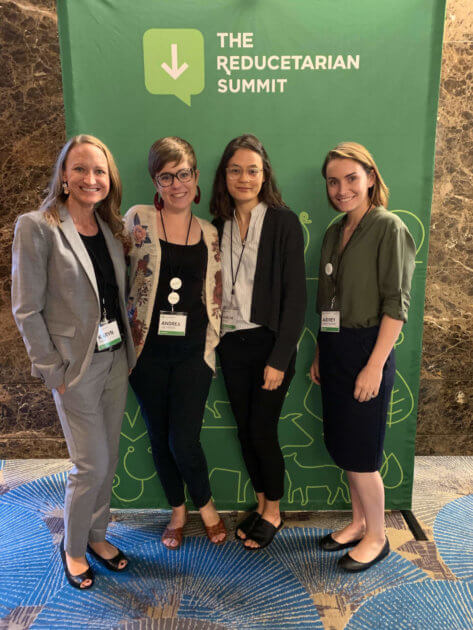
Balanced is a public health and nutrition advocacy organization focused on food industry accountability and institutional menu reform. Balanced reports that since receiving a grant from the EAA Fund, their advocacy team has more than doubled the number of active meat reduction campaigns taking place at schools, hospitals, and offices around the world. Their institutional support team created a guide for foodservice professionals aimed at helping them redesign their menus. Their guide has a focus on replacing items containing animal products with plant-based alternatives. They report that their institutional support team currently works with foodservice teams in major U.S. school districts and universities.
Be Fair Be Vegan ($30,000)
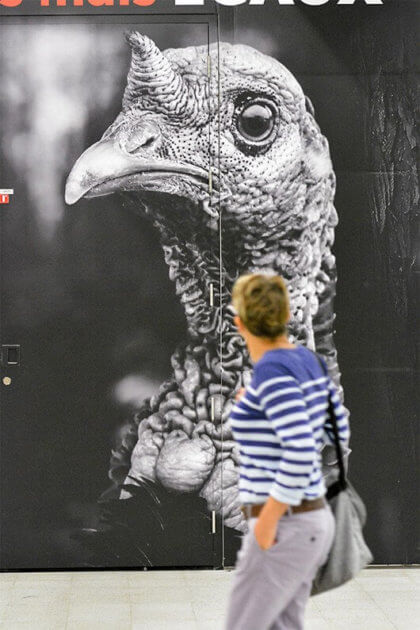
Be Fair Be Vegan (BFBV) uses physical advertising, including billboards, to run targeted vegan advocacy campaigns in several cities. BFBV reports that as a direct result of receiving a grant from the EAA Fund, they were able to optimize their website for better engagement, create content to support people interested in veganism, and publish extensive information about animal exploitation. In addition, they were able to start allocating a portion of their budget to increase media coverage of their press releases. This led to a significant increase in media coverage, including on national Canadian television and radio. ACE’s grant also enabled BFBV to provide their Canadian team with outreach materials such as leaflets, posters, and t-shirts to use during vigils.
Center for Animal Law Studies ($50,000)
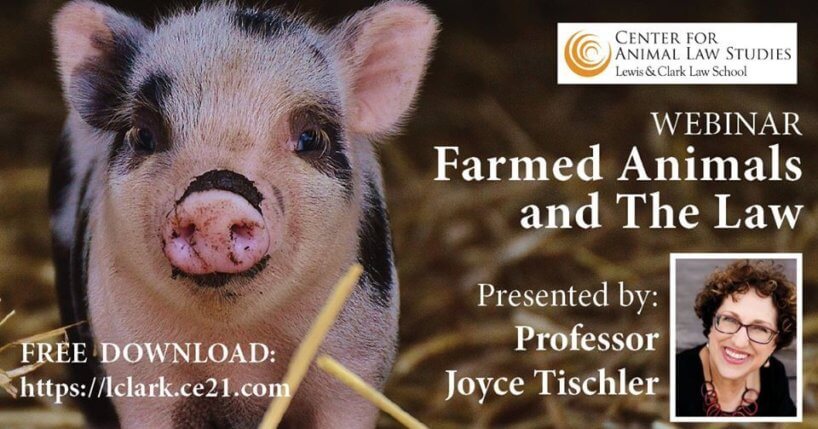
The Center for Animal Law Studies (CALS) at Lewis and Clark Law School requested funding to help launch the Animal Agriculture Law Project. The aim of the project is to establish an industrial animal agriculture course as part of every American Bar Association law curriculum in the U.S., starting with updating the course they currently teach at Lewis and Clark Law School. CALS reports having made significant progress on this goal. In May, they welcomed Professor Joyce Tischler, a pioneer in animal law who has since released a webinar on the topic. Tischler is currently co-authoring a casebook on industrialized animal agriculture law and policy, anticipated for release in the fall of 2020. In addition, she developed a law course that she will teach in the next few months. CALS notes that these are important building blocks to education and outreach for the benefit of farmed animals, the environment, and the many workers who endure unsafe working conditions on factory farms.
CALS received a second EAA Fund grant in the fall of 2019.
Centre for a Responsible Future ($15,000)
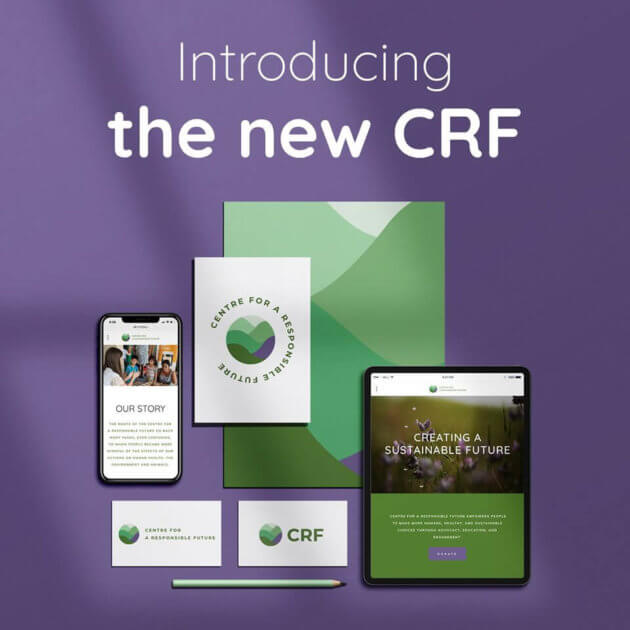
The Centre for a Responsible Future (CRF) requested funding for their corporate engagement program in Singapore which aims to support people making more humane, healthy, and sustainable choices. They used part of the funding to update their website and branding for clearer communication and part of it to improve their marketing and processes in order to increase their business membership. They report that their membership consists of over 80 business members and that it continues to grow.
Christopher Sebastian McJetters ($25,000)
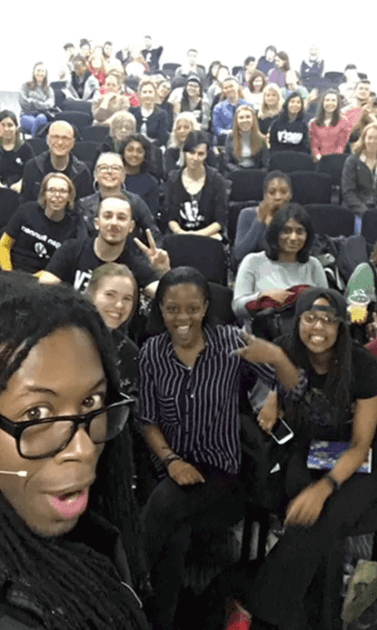
Christopher Sebastian McJetters is an author, researcher, and lecturer who focuses on animal ethics and its intersections with other forms of oppression. With the EAA Fund grant, we aimed to help McJetters expand his reach and provide support for content development, equipment, and other needs. McJetters reports that he conducted a literature review about food deserts, which is expected to be published soon. In addition to this research, he co-organized the U.K. Vegans of Color Conference and a climate summit which highlighted the role of animal agriculture in climate change and helped advocates deal with climate grief and trauma in collaboration with the Climate Psychology Alliance. McJetters also presented lectures at various occasions including a lecture in Brazil about how to combat deforestation due to cattle ranching under repressive political opposition. He also presented at the Edinburgh Vegan Festival, VeganFestNL, the University of Chicago International House, and at a congress on inclusivity in the vegan movement in Rotterdam, the Netherlands. In addition, McJetters conducted research to help animal advocacy organizations increase their equity efforts in the U.K. and the U.S.
Compassionate Action for Animals ($40,000)

Compassionate Action for Animals applied for an EAA Fund grant to hire a community organizer and expand their volunteer-led programs. These programs aim to serve communities that are generally underrepresented in animal advocacy. Since receiving the EAA Fund grant, they supported three local activists of color in deepening their skills and connecting to other advocates at the Animal Rights National Conference. They co-hosted “Green is the New Black: A Plant-Based Market” with two organizations in the Northside of Minneapolis, a predominantly African-American neighborhood. Fourteen black entrepreneurs sold their wares at this event, and over 80 people attended. The event also served as a networking opportunity—Compassionate Action for Animals connected with entrepreneurs, new volunteers, and other people interested in following their work and attending future events. For their Twin Cities Veg Fest, Compassionate Action for Animals expanded participation from exhibitors of color by networking with volunteers and setting a special rate for start-ups owned by people of color. In addition, they launched a plant-based cookbook club in partnership with the Hennepin County library system to help end health disparities between communities.
Compassion Over Killing ($30,000)
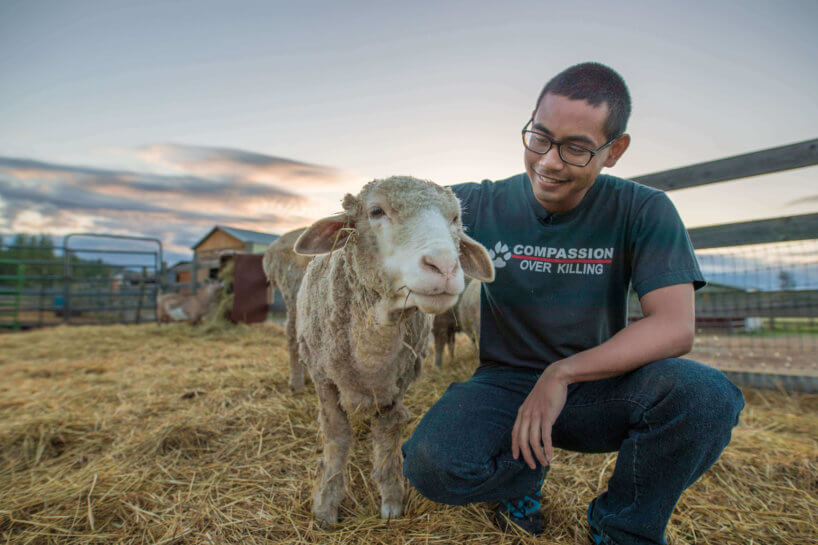
We provided Compassion Over Killing (COK) with a grant to cover partial funding for the salary of an attorney to expand COK’s litigation program. COK notes that successful cases within the field of animal law can pique the interest of practicing lawyers outside the movement, who then may be incentivized to bring similar cases in the future and bring more talent into the movement. An illustration of COK’s work can be found in this article by Sentient Media. A member of COK went undercover in a lamb slaughterhouse run by Superior Farms, the largest lamb producer in the country. The investigation documented a variety of humane handling violations of the animals which breached contracts Superior Farms had with the U.S. government. In response, COK brought a lawsuit and the company reformed their killing practices, reportedly impacting approximately 1,000 animals per day.
Dharma Voices for Animals ($15,000)
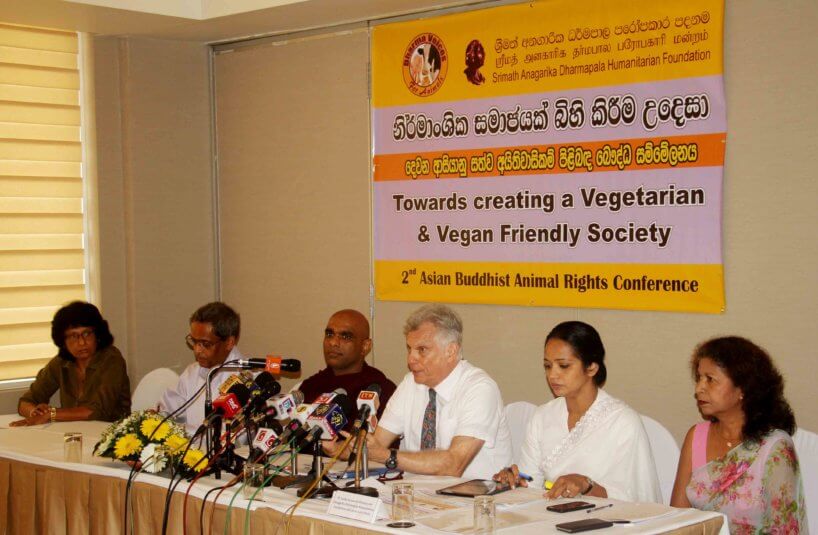
Dharma Voices for Animals (DVA) works to educate Buddhist communities on animal rights issues as they pertain to the Buddha’s teachings. Dharma Voices for Animals reports that the EAA Fund grant allowed them to add chapters to their network in seven locations.17 They also report that they recently held private meetings with political leaders in Sri Lanka who are considering a landmark animal advocacy bill. In Vietnam, DVA added an additional 12 participating Pagodas (temples) where they offer social and educational events. DVA reports that the average number of people attending each event is around 1,000. Four events are being held at each Pagoda during the first year. DVA notes: “Working with Buddhist monastics as well as laypeople in both our Sri Lanka and Vietnam Projects, we have found that stressing the health benefits of a plant-based diet appeals to a broader audience than does compassion for animals. This is true among Buddhists even when they are familiar with the teachings of the Buddha that we must treat with compassion every living being that can feel pain. This is as true in Vietnam, a Mahayana country where the Buddhist tradition clearly accepts that the Buddha himself was vegetarian and expected his followers to be, as it is in Sri Lanka, a Theravadin country where the Buddha is not considered to have been vegetarian.”
Dyrevernalliansen (Norwegian Animal Protection Alliance) ($16,500)
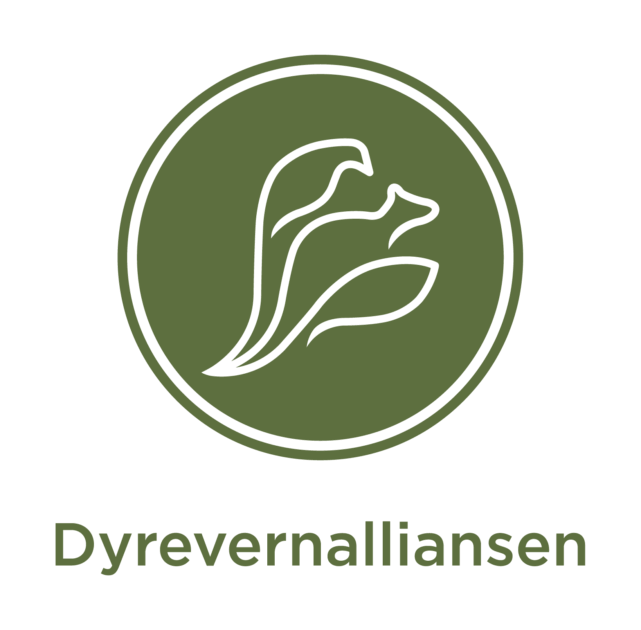
Dyrevernalliansen applied for funding to cover the operating costs of the Norwegian Animal Protection Fund (NAPF). The NAPF aims to fund research projects that will advance the animal advocacy movement. Dyrevernalliansen notes this is the first time that the Norwegian Animal Protection Fund has been able to accept applications for research funding since 2012. They report that the quality of the applications they received is high, and they are very happy to be able to distribute the fund again. The NAPF distributed funding to four projects so far.18 In line with one of their focus areas, they provided funding for a research project regarding the impact of environmental enrichment on the welfare of salmons in aquaculture. The project will also develop non-invasive indicators of stress and welfare for fishes kept in intensive aquaculture.19 We especially appreciate this project and focus area because fishes in aquaculture are very numerous and live in extremely stressful conditions.
Emerging Markets Investors Alliance ($30,000)

The Emerging Markets Investors Alliance (the Alliance) is a nonprofit that educates investors on topics such as transparency, anti-corruption, environmental issues, and corporate governance, in addition to promoting animal welfare. With their grant from the EAA Fund, the Alliance has been able to educate institutional investors in emerging markets about environmental, social, and governance (ESG) issues facing the Brazilian animal product industry. In particular, they have been engaging experts—including animal welfare organizations—to develop educational materials and prepare them to present to investors. They have also begun engaging Brazilian protein producers in a discussion on ESG issues facing their industry. The Alliance notes that institutional investors in emerging markets are generally new to many of the ESG issues facing the Brazilian protein industry. They noted the following: “As we continue our efforts to educate and engage investors, we also plan increasingly to engage the Brazilian protein producers in discussions with investors and public policy experts on ESG issues. We believe such engagements with investors and companies can lead to improvements in industry practices.”
Encompass ($50,000)
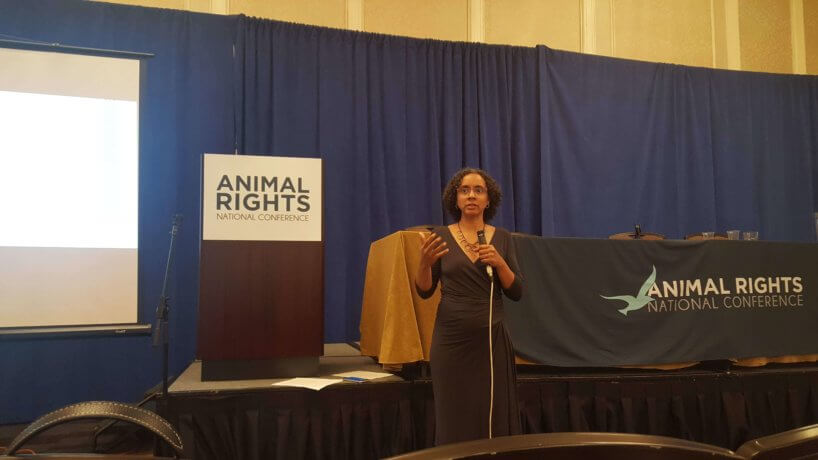
Encompass aims to improve the animal advocacy movement’s impact by making it more racially equitable. They received a grant to hire a Managing Director, who would be their first new staff member after the founder Aryenish Birdie. Encompass reports hiring their new Managing Director Michelle Rojas-Soto as the biggest achievement of the year—Rojas-Soto has 15 years of leadership experience in nonprofit and social enterprise work and is a founding member of Gender Equity in Animal Rights. In July 2019, Encompass launched their Global Majority Caucus,20 which currently has over 80 members from 14 different countries. Their first three online events were reportedly greatly successful and were attended by 45 people from over 10 different countries.21 Encompass reports that prioritizing racial equity in the animal advocacy movement is particularly important because of the risks associated with it not being prioritized, including: hindered productivity, potential for conflict, communication gaps, unfair hiring and promotional preferences, the threat of good talent leaving the movement or never joining in the first place, and the risk of the movement losing relevancy.
Environment & Animal Society of Taiwan ($40,000)
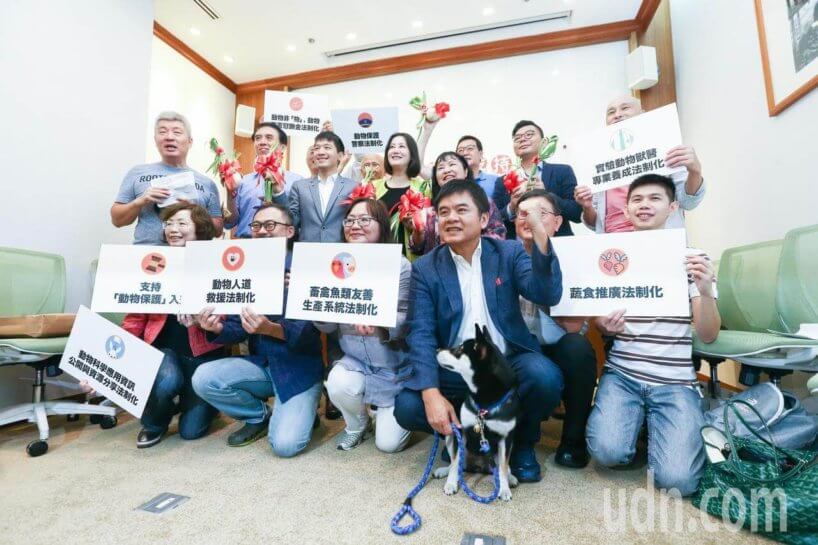
The Environment & Animal Society of Taiwan (EAST) received partial funding to (i) conduct feasibility research into legislative work in Taiwan and (ii) work together with other animal advocacy groups on implementing this work. Since receiving the grant, EAST has become part of a coalition of seven animal groups that have formulated eight legislative demands for advancing animal welfare in Taiwan, including the inclusion of animal protection in the Constitution of the Republic of China (Taiwan).22 For the 2020 election season, the coalition is uniting to call on legislators to pledge to support these eight appeals. All of Taiwan’s 113 legislators received an invitation to sign the pledge and 12 of them committed. We are excited about the progress that EAST has made so far as part of this coalition.
Equalia ($10,000)
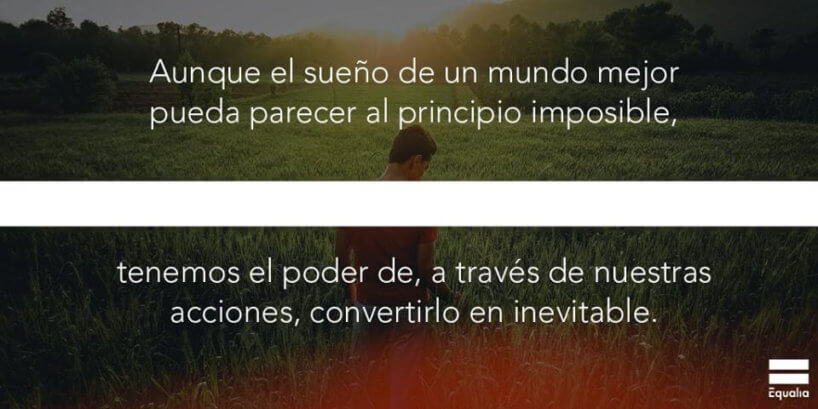
ACE’s grant from the EAA Fund provided funding for about five months of Equalia‘s work in which they aimed to achieve mandatory video surveillance in all Spanish slaughterhouses. This year, Equalia released four undercover investigations. They report that only two days after releasing their second investigation, the meat industry announced that it would “request legal adjustments to demand industries to deliver their recordings to a legal inspector,” resulting in the mandatory installation of closed-circuit television (CCTV) in every Spanish slaughterhouse. Equalia notes that they continue campaigning and aiming for the changes to occur faster. In addition, Equalia worked with Carrefour Spain and El Pozo Alimentación, both of which announced they will require their meat suppliers to install surveillance cameras in all slaughterhouses.23
Equalia received a second EAA Fund grant in the fall of 2019.
Equal Sign ($15,000)

ACE’s grant to Equal Sign supported a vegan festival in St. Petersburg that aimed to appeal to vegans as well as people from other social movements. The festival included 24 lectures by activists, scientists, influencers, and doctors on topics of veganism, ecology, feminism, and more. In addition, there were 12 culinary masterclasses, 50 vegan and ethical vendors, and 15 nonprofit and charity projects. Equal Sign reports that the festival received an attendance of over 5,000 people; they also shared this video and photos from the event. We are excited to be able to contribute to the animal advocacy movement in Russia and to help Equal Sign build alliances with other movements.
Essere Animali ($40,000)
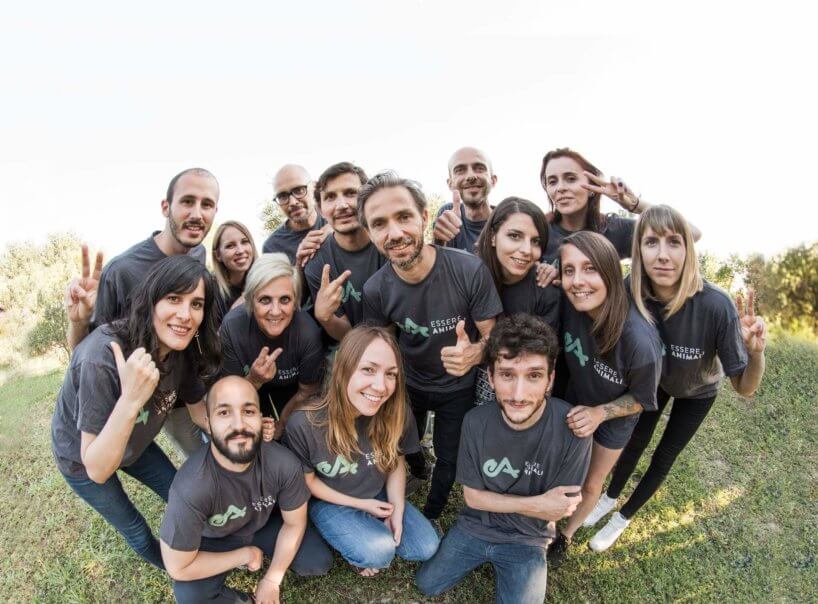
Essere Animali is a farmed animal advocacy organization based in Italy. With their grant from the EAA Fund, they were able to strengthen their organization via management trainings for leadership, improving the organization’s internal structures and communication between staff. We believe that effective management is key to doing effective work24 so we are excited to be able to have supported this progress. In addition, Essere Animali conducted vegan outreach on university campuses and organized a public training with the Center for Effective Vegan Advocacy (CEVA). They also plan to organize an animal rights conference in Milan in the upcoming months. Essere Animali notes that the EAA Fund application process provided an occasion for them to evaluate their own work and think about ways to improve it. The process led them to think critically about what their internal structures should look like in order to be able to sustain their projects. They also note that since improving their internal structures, they are now stronger and able to do better work in the future.
Factory Farming Awareness Coalition ($50,000)
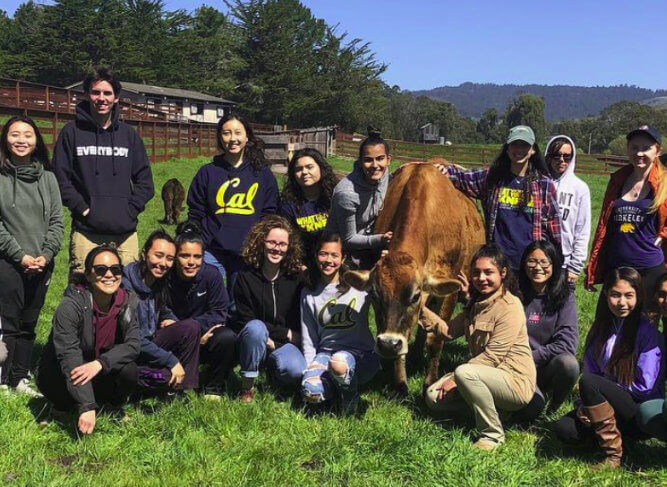
The Factory Farming Awareness Coalition (FFAC) delivers humane education in schools, community groups, and businesses across the U.S. and Canada. They received funding to expand their internship program and develop a network of high school and college student leaders to conduct outreach in their communities. FFAC reports that their Bay Area spring program and summer high school intern program had 10 high school students in each program with 2–4 college mentors. In total, their programs had over 50 interns in various cities in the past year. FFAC reports that collectively, interns spent over 150 hours engaged in outreach such as tabling, leafleting, and vegan food tastings. FFAC reportedly collaborated with The Changemaker Project to develop a digital curriculum for interns to learn about the various ways that factory farming has a negative impact on the world.25 FFAC reports that 86% of summer interns indicated that as a result of their internship, they are better leaders, better team members, and more self-motivated. All of them agreed that they will continue to work to end factory farming in the future. The upcoming fall and spring internships already have 35 students enrolled.
Factory Farming Legal Fellowship ($20,000)
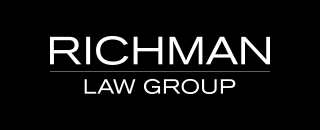
The Factory Farming Legal Fellowship Program places young attorneys in year-long fellowship positions with the Richman Law Group. The EAA Fund provided the partial annual salary of the Factory Farming Law and Policy Fellow. This allowed them to file a lawsuit against Tyson Foods26 alleging that Tyson markets its chicken products with misleading representations regarding animal welfare and environmental sustainability. Jay Shooster, Factory Farming Law and Policy Fellow notes: “Undercover investigations and corporate campaigns have been extraordinarily effective ways to raise awareness of the harms of factory farming and to pressure companies to voice support for more humane and sustainable business practices. But, these effective tools rarely lead to legal consequences for these companies or to legally binding agreements. False advertising advocacy is an essential tool that the movement can use to hold companies legally accountable—through legal rulings or legally binding settlement agreements—when their marketing doesn’t match the cruel and unsustainable reality of their business practices.”
Federation of Indian Animal Protection Organisations ($50,000)
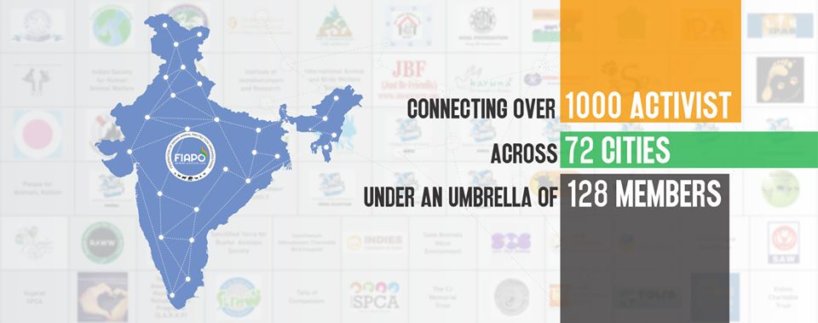
The Federation of Indian Animal Protection Organisations (FIAPO)—a federation with 128 member organizations—positions itself as a key driver of movement building in India. ACE provided funding for FIAPO to build relationships with members of the parliament and educate them on animal welfare issues. So far, FIAPO has engaged with over 20 members and received confirmation from four that they will take part in FIAPO’s advocacy initiative and raise animal welfare-related questions in the parliament. In addition, FIAPO started their legislative outreach in the states of Uttar Pradesh, Uttarakhand, and Madhya Pradesh, and received confirmation on the collaboration with the Samajwadi Party, a major regional party. FIAPO notes that “[a]nimal advocacy has taken a backseat in India for quite a long time, now is the time to act and raise our voice on behalf of animals.” They add that policies are often framed arbitrarily without taking all the relevant stakeholders into account, leading to some policies eventually impeding animals rather than ensuring animal welfare.
FIAPO has since been evaluated by ACE and is now a 2019 Standout Charity.
Food Empowerment Project ($50,000)
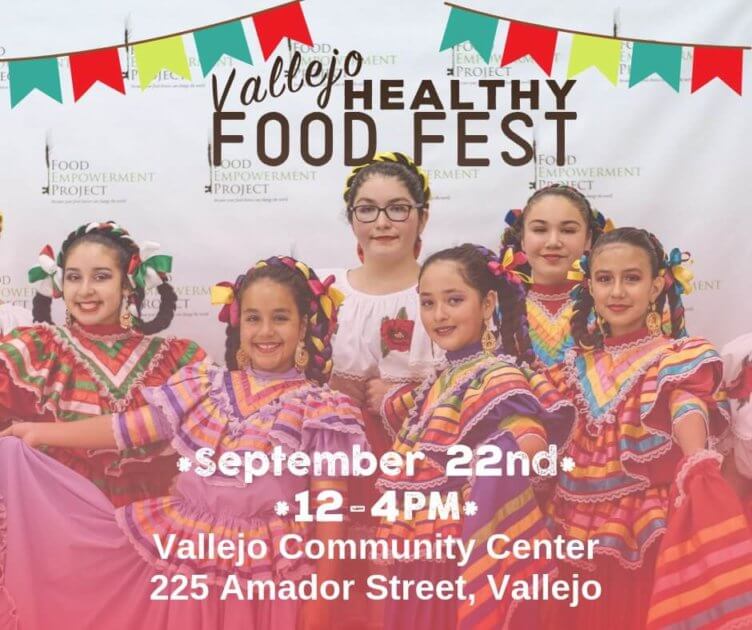
Food Empowerment Project (F.E.P.) is a vegan food justice organization. Since receiving their grant from the EAA Fund, F.E.P. launched their new website Vegan Filipinx Food. F.E.P. notes that this website is born out of their commitment to reflecting the ethnic and cultural diversity of the vegan community. They promoted their Vegan Mexican Food resources in Spanish-language newspapers, encouraging people to request a free booklet to be sent to their home. F.E.P. notes that due to the political climate in the U.S., many Spanish people were reluctant to disclose their home addresses. Moving forward, F.E.P. plans to direct people to their website instead of offering to send them a booklet. In addition to the website and the ads, F.E.P. expanded their anti-dairy work by hiring their first Outreach and Campaigns Coordinator. Additionally, as part of their Fight for the Ocean program, F.E.P. created cards and organized an international beach clean-up.
Grassroots Artists MovEment ($30,000)
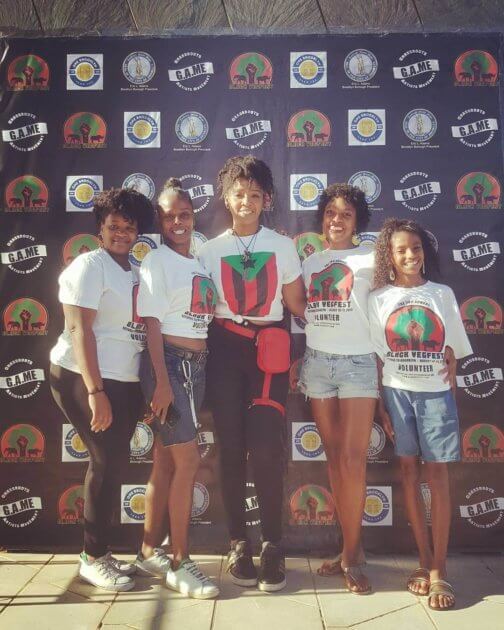
Grassroots Artists MovEment (G.A.ME) received funding to organize Black VegFest which promotes veganism alongside socio-economic and political issues facing Black and Latinx communities. G.A.ME reports that they tripled the number of people attending Black VegFest compared to last year, when the VegFest was organized for the first time.27 They also note that they received a New York City Proclamation with the second Saturday of August being Black VegFest Day. The VegFest was covered by two local news agencies: Edible Brooklyn and News 12 Brooklyn.
Health Save Movement ($10,580)
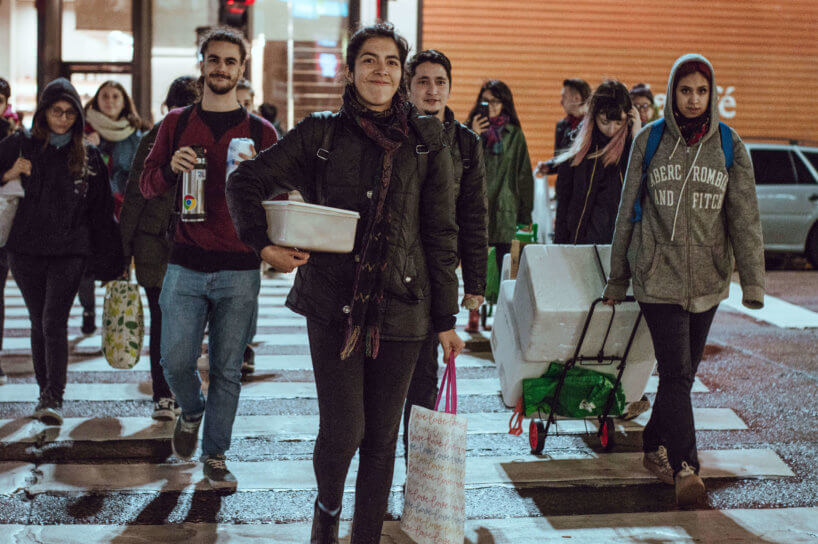
ACE provided funding for Health Save Movement, which aims to promote the health benefits of veganism and make veganism more accessible. With this grant, Health Save Movement built the capacity of their branch in Argentina. This includes their Health Save Streets campaign which consists of distributing 400–500 healthy vegan meals weekly to people living in vulnerable social conditions. Health Save Streets currently consists of 11 local chapters throughout Argentina (actively promoted on their Instagram). In addition to Health Save Streets, Health Save Movement Argentina developed a legislative project to increase accessibility to plant-based options in the city of Buenos Aires. They also formed the Alliance for Climate, a coalition of 30 organizations with aligned goals.
Human Behaviour Change for Animals ($20,000)
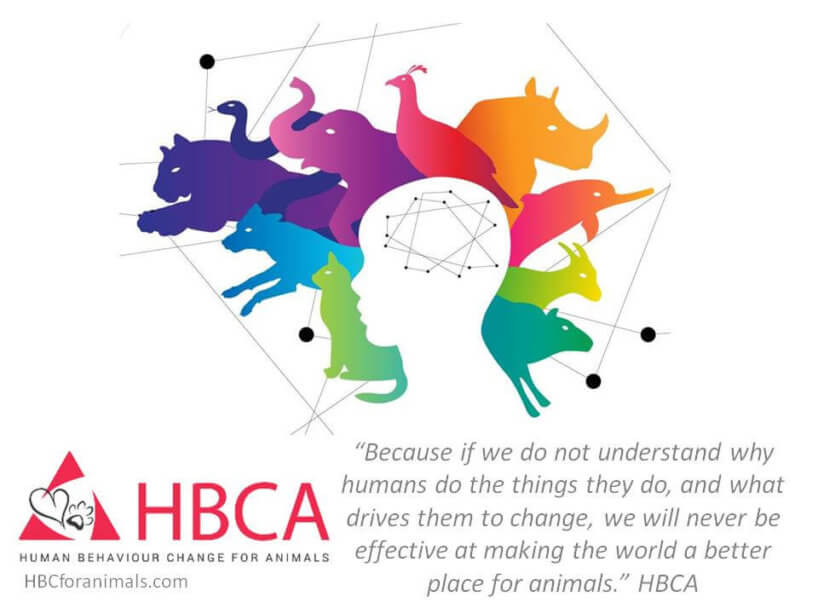
Human Behaviour Change for Animals (HBCA) researches principles of human behavior change that may be instrumental for animal advocates. They report that their EAA Fund grant enabled them to develop and deliver a series of training courses, both in person and online, that aim to help animal advocates be as impactful as possible. They also note that the grant allowed them to meet their goals faster and more professionally than they would have been able to without it. To learn more about how human behavior change can help animals, see the various talks from a 2016 conference available on HBCA’s YouTube channel.
Mission Vegan Andhra ($4,000)
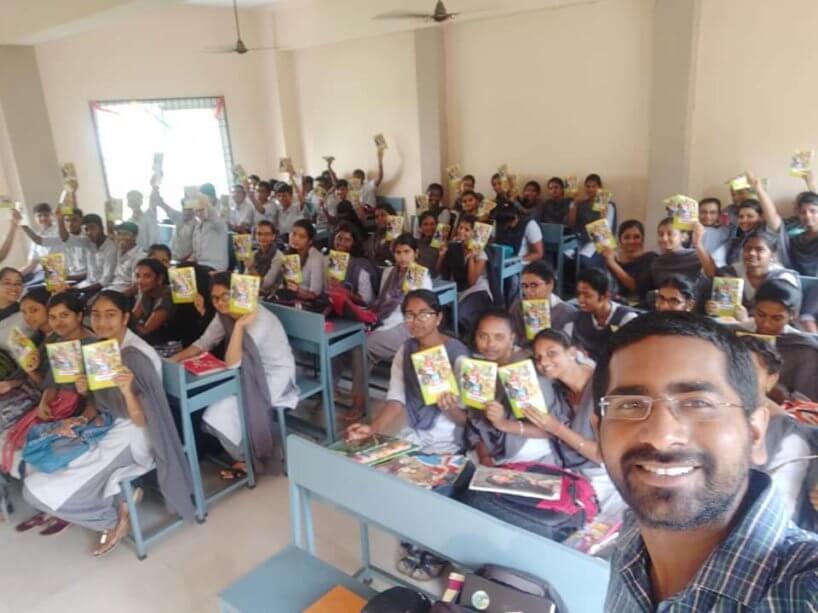
With support from ACE’s EAA Fund, Mission Vegan Andhra presented 150 lectures and created and published additional social media content. Mission Vegan Andhra reports that since receiving the grant, their content has reached over two million people and their social media following reached the landmark of 30,000 people. Their 86 lectures at educational institutions have reportedly reached over 8,300 young people in eight different cities.28 Mission Vegan Andhra’s content is mainly in Telugu, a language with 82 million native speakers.29 They believe the animal advocacy movement can increase their relevance to local audiences and reach more people by producing more content in native languages and using local statistics, rather than global ones.
Palestinian Animal League ($35,000)
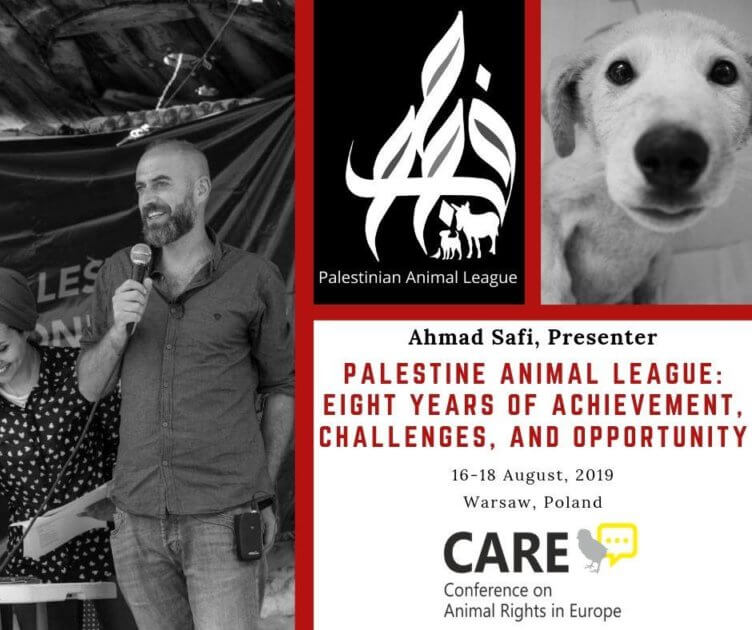
The Palestinian Animal League (PAL) received a general support grant which went towards the rent costs for a building that serves as a vegan community center and small animal clinic. In addition to outreach activities in the community center, at universities, and online, PAL was able to intensify their lobbying efforts geared towards restricting hunting and promoting trap-neuter-vaccinate-release (TNVR) efforts for stray animals. One of the reasons we were excited to support PAL was due to their international collaboration. PAL reports that in the past months, they supported (i) animal advocates in Morocco to set up the first animal welfare organization in their area of the country, (ii) advocates in Kurdistan to launch their organization, and (iii) advocates in Jordan to successfully adapt the TNVR program to their own context.30 PAL recently gained a Board of Directors’ role in Middle East Network for Animal Welfare, a regional animal protection network headquartered in Egypt.
Peace Advocacy Network ($20,000)
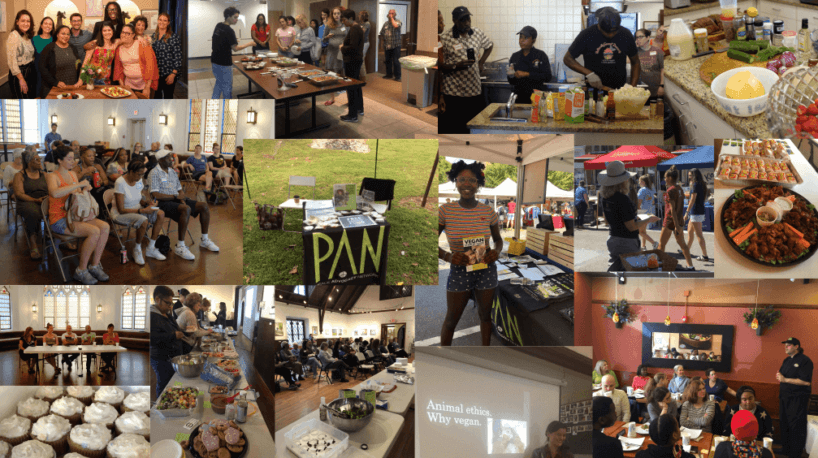
Peace Advocacy Network received a grant to reach more people with their message connecting human rights and animal rights via their unique Vegan Pledge program that provides hands-on, live support. With the grant, they were able to hire multiple part-time staff to organize and manage the program. PAN reports that in 2019, they added three new Vegan Pledge programs,31 with at least three additional new programs being planned to be implemented by the summer of 2020. In addition, they report that their programs in Phoenixville, PA and Manhattan would not have been possible without ACE support. Unlike most vegan pledge programs that rely on sending participants information online, PAN’s Vegan Pledge happens in person with hands-on guidance. The Vegan Pledge Program consists of five weekly meetings including cooking demonstrations, speaker events, a personal mentor, optional social support events, and a care package. PAN notes that each Vegan Pledge Program is projected to have 30 pledges on average.
PlantPure Communities ($30,000)
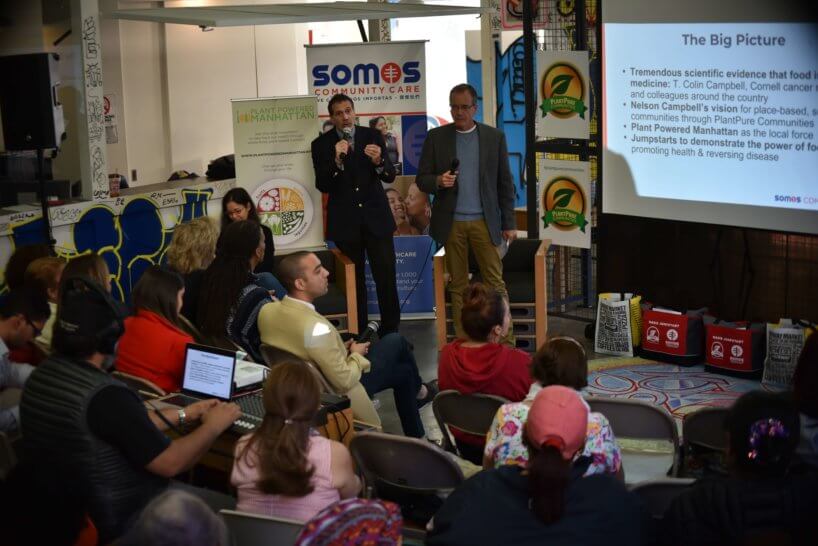
PlantPure Communities (PPC) encourages people to form independent groups called “Pods,” through which they may share information and lead initiatives in support of plant-based lifestyles. PPC reports that since receiving the grant, the PPC Pod Network has grown by over 100,000 people to almost a quarter of a million people in 22 countries. PPC has also expanded their Oasis Jumpstart pilot program, which aims to bring plant-based meals, science-based nutrition education, and healthy lifestyle practices to underserved neighborhoods across the country. To date, 20 Oasis Pilots have been completed, including eight in collaboration with independent physician network SOMOS Community Care.32 In addition, PPC worked on building the Nutrition Climate Coalition and bringing together environmental advocates, medical doctors, and nutrition scientists to develop and expand ten strategies to scale up the shift to plant-based eating.33
Sentient ($32,500)
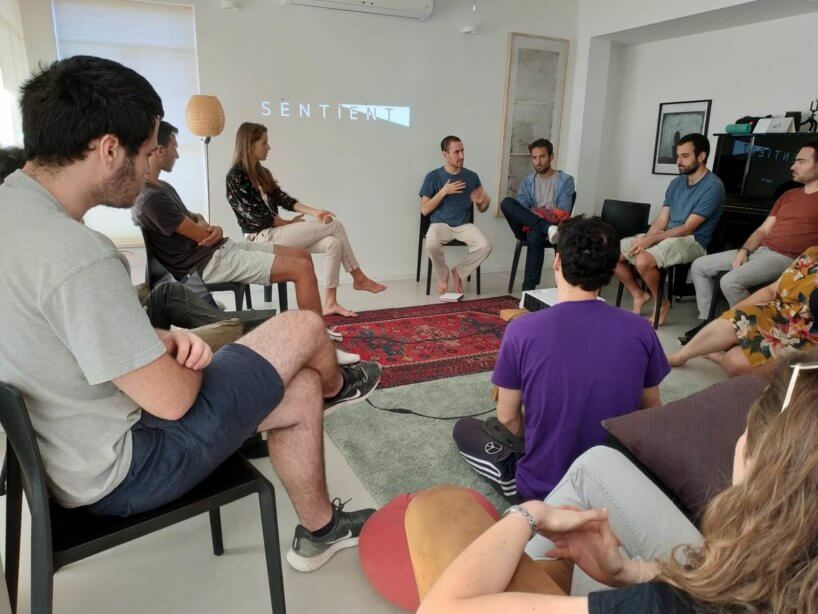
Sentient is an Israeli nonprofit focused on conducting undercover investigations. ACE provided them with funding to expand their investigation work both in Israel and abroad, and to support their Animalist project which seeks to map out the animal advocacy movement. Sentient notes that while working on their Animalist project, they’ve come to feel that there is a lack of information-sharing within the animal advocacy movement, especially between different countries and regions. They think that organizations may be missing out on information that would be useful to their work and activists may be missing out on advocacy opportunities they would be a great fit for. Regarding investigations, Sentient recently released undercover footage of their investigation of four “cattle stations” in Australia.34 With their accompanying campaign, they hope to achieve practical outcomes (such as changes in regulations) and to start a public conversation about the systematic cruelty that animals endure in the food system.
Sneha’s Care ($18,600)
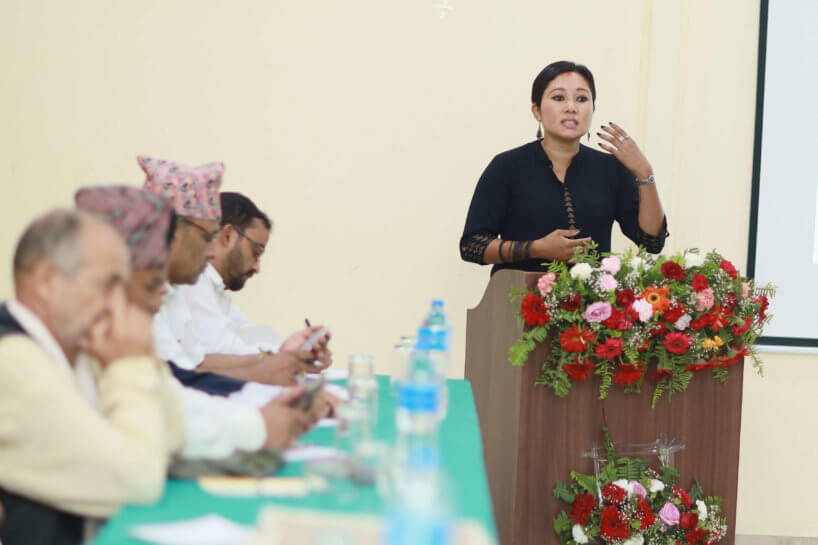
Sneha’s Care works to strengthen Nepalese animal protection laws for farmed animals by developing relationships with and educating politicians, members of the media, and religious leaders. With this grant, Sneha’s Care translated animal protection legislation into several regional languages in order to make the legislation accessible to more Nepalese advocates. In addition, Sneha’s Care organized several workshops and seminars to bring together people in politics, media, and religion to work on strengthening animal welfare in Nepal. Lastly, the organization has started to develop animal welfare standards for the industries using cows for dairy, goats for meat, and chickens for meat. We are impressed with the various ways in which the organization has worked to strengthen Nepalese animal protection laws so far and are excited to fund the remainder of the project with our second grant from the EAA Fund.
Sneha’s Care received a second EAA Fund grant in the fall of 2019.
The Raven Corps ($10,000)
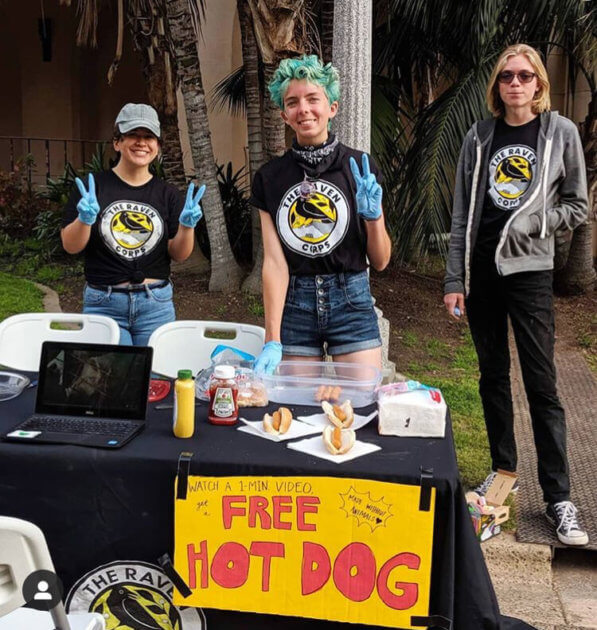
The Raven Corps supports activists between the ages of 14 and 22 in advocating for plant-based diets. Since receiving their EAA Fund grant, The Raven Corps has expanded outside of Portland and now has six Corps in total.35 They are expected to launch one in Long Island, New York in January. At the Animal Rights National Conference, The Raven Corps presented on a panel about teen activism and hosted a workshop. The Raven Corps reports that they dramatically expanded their reach in recent months. They are also currently working to develop a workbook to help their “lead Ravens” navigate their roles as youth activist leaders and prepare the organization for further expansion. We are excited about their continued progress in helping young people develop as leaders within the animal advocacy movement.
The Vegan Rainbow Project ($5,000)
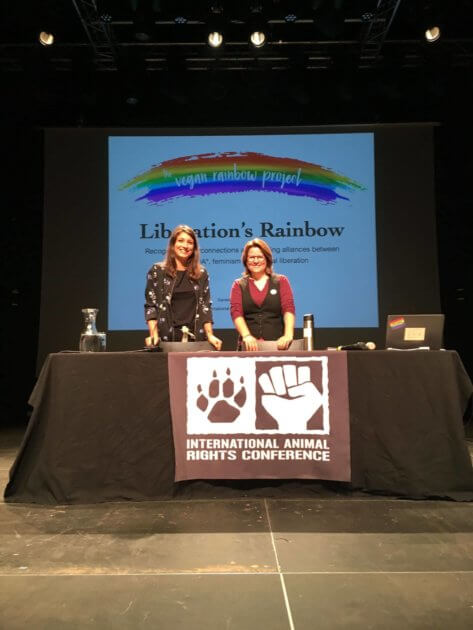
The Vegan Rainbow Project works to make the animal advocacy movement more inclusive by helping people make the connection between different types of oppression. The EAA Fund allowed The Vegan Rainbow Project to attend and present at various national and international events. In 2019, this included talks at the European Lesbian Conference in Kiev, the Lesbian*-Spring meetup in Cologne, the Pride Week in Wiesbaden, the Vegan Summer Festival in Berlin, the International Animal Rights Conference in Luxembourg, the Pride Cultural Days in Hannover, as well as several smaller animal advocacy events. The talk at the International Animal Rights Conference has been recorded and is available on YouTube.
The Veggie Connection ($10,000)
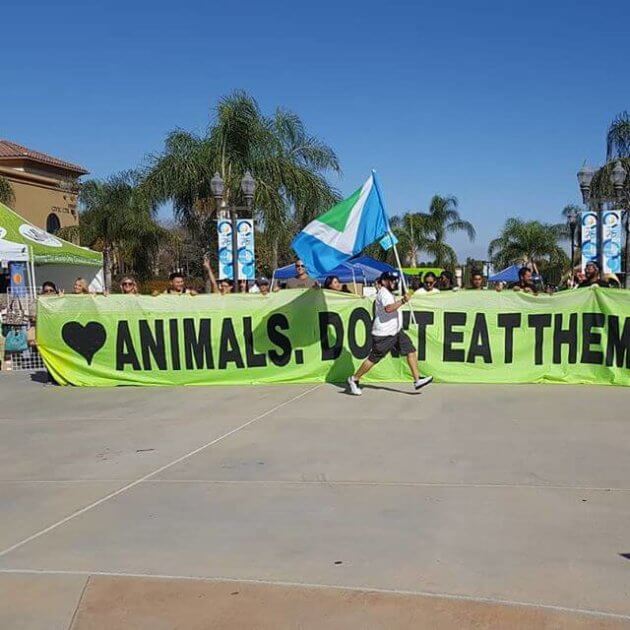
The EAA Fund provided funding for The Veggie Connection to organize affordable vegan events in “second-tier” cities where these events did not yet take place. With the grant, The Veggie Connection was able to make their annual events free of charge which made them accessible to a larger group of people. The Veggie Connection was also able to obtain more speakers, expand the event time, and reach a larger audience via advertising. The Veggie Connection notes that the EAA Fund grant increased their visibility among other organizations that could potentially support their events in the future.
Thrive Baltimore Community Resource Center ($30,000)
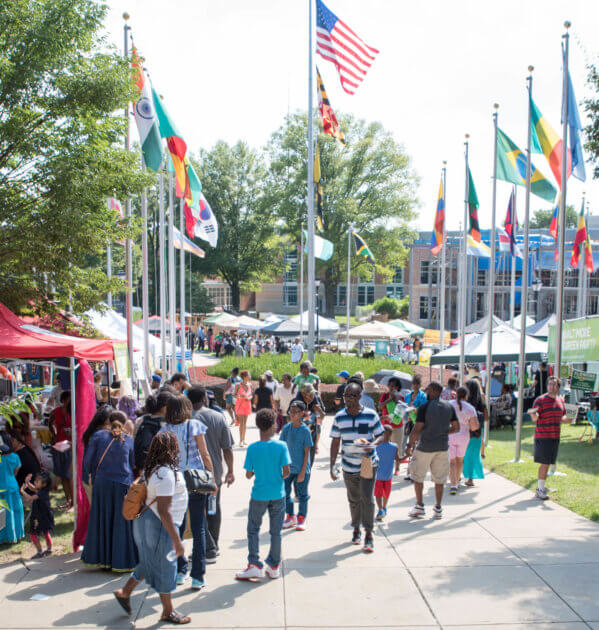
Thrive Baltimore is a community resource center run by a collective of food, environmental, and social justice advocates. After receiving the grant, Thrive Baltimore organized their Dump Dairy event which was attended by around 200 people and included recipe demonstrations, presentations by nutrition experts, and food tastings. In addition, they organized Thrive Baltimore’s Plant-Based Jumpstart event which attracted approximately 430 attendees. They also co-organized Vegan SoulFest, which they report had a record turnout of around 12,000 attendees.
UK Centre for Animal Law ($19,147)
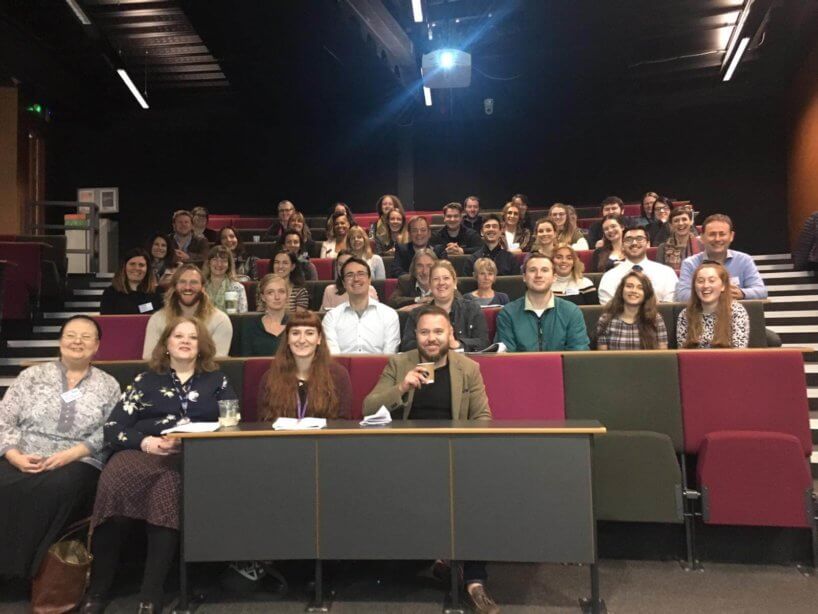
The UK Centre for Animal Law (A-law) is a legal education charity. They received a grant from the EAA Fund to hire a Legal Support Officer for the student outreach program and to sponsor 60 student places for the 2019 Animal Law Conference. The conference had the theme of Ethics & Policy and aimed to bring together leading animal law academics, animal welfare law practitioners, and research students to share ideas and develop networks in the field of animal law. A-law reports the conference was a huge success. (An impression of the conference can be found here.) The Legal Support Officer helps students find speakers for campus talks, provides ideas for engagement, searches for relevant volunteer and pro bono opportunities, and more. They also support the editor of Animal Justice UK, A-law’s university-focused e-magazine.
Veganuary ($50,000)
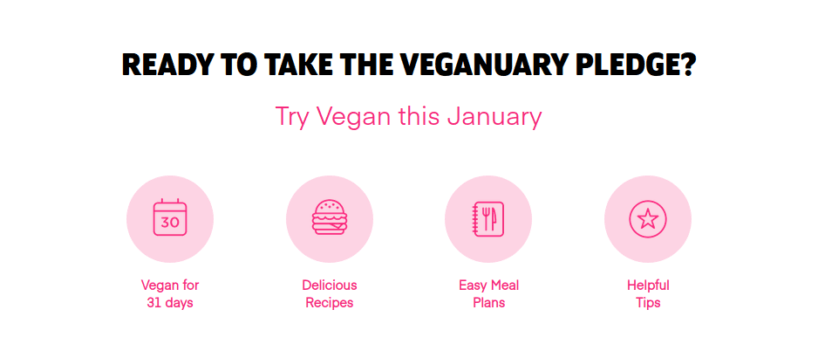
Veganuary is a U.K.-based charity that runs a month-long vegan pledge campaign every January. They applied for funding to help better understand the impact of their campaigns via market research. The research has been completed and found that around 366,000 people in the U.K. gave up animal products in January 2019 as part of Veganuary. This is over three times the number of people from the U.K. who signed up online for the official Veganuary campaign. The research found that in total, an estimated 1.31 million people from the U.K. gave up animal products in January, and 1.2 million kg fewer animal products were purchased in the U.K. between January and June as a result of the people taking part in Veganuary. Veganuary notes that the insight of this research already has a positive impact on their corporate outreach work: They are reportedly in the process of connecting with hundreds of retailers and businesses about supporting their 2020 Veganuary campaign, and they will be using the insights from the research to help secure income from businesses going forward. They report that corporate fundraising will be one of their key areas for growth in 2020. Veganuary encourages other groups in the movement to invest in market research where possible in order to better quantify the impact of their campaigns and refine their campaign strategies.
Vegetarianos Hoy ($25,000)
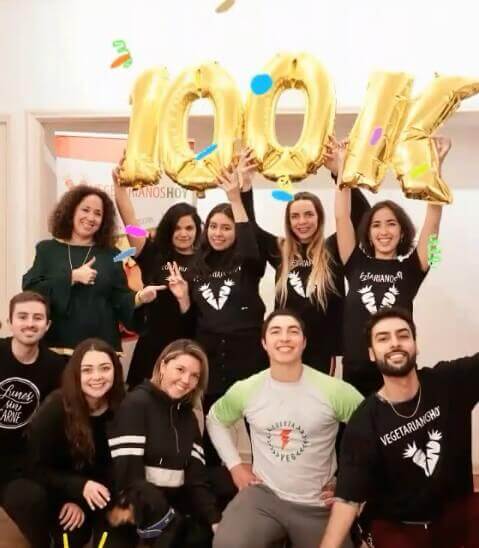
Vegetarianos Hoy works in Chile to reduce the consumption of animal products through outreach to individuals, government, and corporations. Their grant went towards renting office space, hiring a Communications Director, and hiring a Corporate Outreach Director. Since receiving the grant, Vegetarianos Hoy worked together with Dominó (a large Chilean hot dog chain with over 45 establishments) to launch a plant-based option and add the Beyond Burger to their menu. They also worked together with Melt Pizzas, which has over 20 establishments and is now the first pizza chain in Chile to offer a vegan pizza. Vegetarianos Hoy plans further collaboration with Melt Pizzas and three other companies to launch the development of vegan options. The Communications Director has secured over 120 press appearances on national and international media, and Vegetarianos Hoy’s Instagram following grew to over 130,000 people on their main account and over 80,000 followers on their Lunes Sin Carne campaign account.36
Effective Animal Advocacy Fund is now Movement Grants. See this blog post for our reasoning behind the name change.
In total, ACE distributed 48 grants in the first round of funding. This post includes only the updates from the 43 grantees who agreed to make their updates public. There were various reasons for which grantees decided not to publish their updates on our blog.
As a result of their grant from the EAA Fund, Animal Ethics published the following web pages:
As a result of their grant from the EAA Fund, Animal Ethics updated the following web pages about wild animal suffering:
- Antagonism in nature relating to interspecific conflict
- Malnutrition, hunger, and thirst
- Diseases in nature
- Physical injuries in wild animals
- Weather conditions and nonhuman animals
- Animals in natural disasters
- Psychological stress in wild animals
- Why wild animal suffering matters
- Population dynamics and animal suffering
- Evolutionary reasons why suffering prevails in nature
- Can animals in the wild be harmed in the same ways as domesticated animals and humans?
As a result of their grant from the EAA Fund, Animal Ethics updated the following web pages with advice about how to reduce wild animal suffering:
Urban welfare ecology focuses on improving the welfare of free-living animals in human-occupied spaces, such as pigeons and rats living in cities.
See, for example, Poulter (2019), Wright & Yedroudj (2019), Duncan (2019), Chiorando (2019), and Creaghan (2019).
Animal Justice Project has informed ACE that it is unclear whether the farms have since resumed supplying Tesco.
Animal Save Movement was previously known as The Save Movement.
Ko co-authored her first book Aphro-ism, Essays on Pop Culture, Feminism, and Black Veganism from Two Sisters in 2017.
The numbers increased from approximately 32,000 likes in April 2019 to over 62,000 likes in December 2019.
They increased from a combined total of approximately 230,000 views in April 2019 to over 1.2 million views.
These include locations in Brazil, Colombo, Sri Lanka, Finland, Massachusetts (U.S.), Portland (Oregon, U.S.), and Eugene (Oregon, U.S.).
Dyrevernalliansen notes that the current stress and welfare indicators usually involve handling and sometimes even killing the fishes.
The Global Majority Caucus was previously called the People of Color Caucus. See Encompass’ September 2019 blog post highlighting the reasoning behind the name change.
Advocates can sign up for the Global Majority Caucus via Encompass’ website.
The demands are reported in EAST (2020) as follows:
- “the inclusion of animal protection ideals in the Constitution
- the notion that animals are not ‘things’, and the introduction of compensation for emotional distress resulting from harm inflicted upon animals
- the introduction of animal protection-specific police officers
- humanitarian animal relief practices in disaster management operations
- transparency and resource sharing regarding animal experiments
- the institutionalization of professional lab animal veterinarians in experiments labs
- the enactment of animal welfare and sustainable production guidelines for various species of farmed animals
- the promotion and education of plant-based eating”
See, for example, our Charity Evaluation Criteria and our blog post about how we evaluate workplace culture.
These include negative impacts on health, business, animal welfare, the environment, social justice, and gender.
The lawsuit was filed on behalf of Organic Consumers Association and Food & Water Watch, and the co-counsel was Animal Equality.
G.A.ME reports that over 2,000 people attended the 2018 VegFest and over 6,000 people attended the 2019 event.
The cities include Visakhapatnam, Vijayawada, Guntur, and Hyderabad.
PAL reports that the TNVR program has since been adopted and implemented on a municipal level in Jordan’s capital, Amman.
Currently, five of their programs are located in and around Philadelphia, PA, two are located in New York, NY, and one is located in New Orleans, LA (Peace Advocacy Network, n.d.).
PPC estimates that approximately 300 people directly participated in the eight PPC-SOMOS Oasis Pilots.
The strategies were reported to ACE as follows:
- “Develop and implement a communications campaign.
- Develop educational materials that explain nutrition in a succinct and compelling way.
- Grow the grassroots movement and empower millions of people to carry this message to their communities.
- Educate doctors, medical students and other healthcare professionals on the importance of evidence-based nutrition in health.
- Ensure that strategies are led by authentic local leaders, benefit low-income neighborhoods and communities of color, and are scalable.
- Conduct groundbreaking research.
- Support policy activities at international, national, state and local levels.
- Enhance availability of whole plant-based foods.
- Enhance affordability of whole plant-based foods.
- Address unfamiliarity with whole plant-based foods.”
Sentient notes that one of the reasons for targeting the Australian cattle industry is that Australia claims to have high animal welfare standards, which makes exposing the welfare violations more shocking and impactful. Another reason is that Israel, where Sentient is based, is a large importer of live cows from Australia. The final reason is that Australia’s cattle industry is large and has not been exposed via undercover investigations before.
The newest groups include two in California, three in Oregon, and one in Adelaide, Australia.
Vegetarianos Hoy reports being the organization with the most followers in Chile.
Filed Under: Announcements Tagged With: effective animal advocacy fund, grants, movement building, Movement grants, updates
About Marianne van der Werf
Marianne works toward the elimination of suffering and oppression of all sentient beings. She has been involved in effective animal advocacy since 2015 and is excited to contribute to the movement by identifying promising funding opportunities.
I would love to make a donation an give my daughter a t-shirt or sweatshirt from your organization for Christmas or her birthday. She is passionate about the common values you share and cannot wait to own some land so that she doesn’t have such a large carbon foot print as she works 2 full time jobs from home.
I’m glad Animal Ethics got a grant, they’ve put some great content since for helping wild animals.